“DREDGE is perfectly proportioned.” That was my thought after putting over an hour in the game the first time I tried playing it. As a fishing game, where your main focus is catching fish and selling them, the allure of DREDGE’s gameplay loop is obvious, and what it says about the games scale and pace, frankly delightful. But it’s where that intersects with its appearance as a “cozy game” that gets deep. Abyssally so.
Much has been made of DREDGE’s awkward fit in the “cozy game” genre, which, to be clear, is more of a marketing term for games with charming aesthetics and relaxing, frequently repetitive mechanics than a category that’s been critically defined. The game’s addictive, but undemanding gameplay loop, and charmingly illustrated art style, put it among titles like ANIMAL CROSSING: NEW HORIZONS or STARDEW VALLEY in its potential to allow players to relax and unwind while feeling like they’re getting something done. And yet its unsettling story and general setting are quite the opposite.
You’ll start your day in DREDGE undocking and heading out to a fishing spot, marked, ANIMAL CROSSING-like, with the shadowy silhouettes of soon to be caught fish, and play through one of several fishing minigames to pull up your prey. The slimy specimens in your cargo, you periodically have to pause to rearrange their TETRIS-block shaped corpses to make room for more fish, RESIDENT EVIL inventory management pleasure centers in your brain thoroughly tickled. The day continues on like this, fishing and rearranging, until the sun begins to set and you return home to sell off your cargo and spend money upgrading your meager tugboat for the next day’s haul. Of course, DREDGE has additional layers. Not long into the game you’ll receive a winch to dredge the game’s various shipwrecks for treasure and scrap that can be used to upgrade your ship.
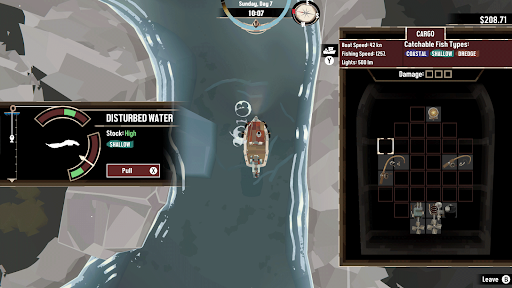
DREDGE gives you the best of fishing mini games and inventory management.
“Shipwrecks? I thought this was a peaceful fishing game,” you might wonder. Well it is, if you only fish during the day. Night, in DREDGE, is full of terrors. The fish get… weird. The dark seems to have a negative impact on your sanity meter, and navigating, with howling spectral energies whipping at your back, and a tiny light illuminating the many sharp rocks in front of you, is a challenge.
But weird fish sell for more money, and the denizens of DREDGE, in remote seaside towns and islands, seem to have a deep interest in the more arcane, unknown elements of the world around them, and are very willing to give you quests that explore it. You could again stop at “Lovecraftian Fishing Game” and be very happy with the next 10 hours you’ll spend, but DREDGE has more on the line.
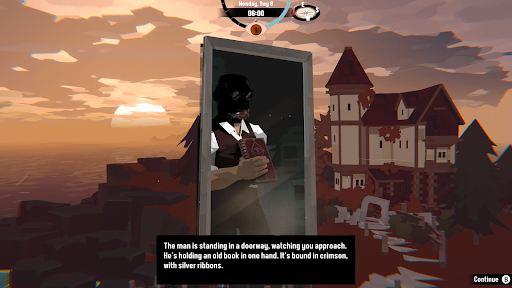
Get used to this asshole making strange demands of you.
Cozy games so frequently fall in the farming and life sim genres because they’re rewarding, and encourage you to engage in systems, rituals for the sake of argument, largely uncritically. Never would one of these games ask you if you really need that next house upgrade or if it’s absolutely necessary you make more money this season than the last, but they dangle those upgrades or improved tools all the same. The main plot of DREDGE, which is to say the quest that encourages you to visit the game’s various settlements and biomes, involves you helping a mysterious collector find lost artifacts from a sunken ship. You’ll hear about various sunken ships during the game from lonely fishermen and messages in a bottle, but this wreck seems different, and the cargo it was carrying, very wrong.
And every time you bring the collector one of these relics you’ve dredged up, he’ll sweeten the deal for you with a magic ability, revealing an alluring upgrade treadmill underneath DREDGE’s more regular and normal improvements. The game’s weary lighthouse keeper will question your determination, “shouldn’t you be happy just fishing, making some money and calling it a day,” even interrupting your loop, stopping you before you sell more fish or leave for that day’s hunt. She speaks with the authority of someone who’s seen how mindless obsession can lead even the most conscious astray. That there’s more peace to be found doing fewer things and wanting less. But why wouldn’t you want a bigger ship, a faster ship, a ship that can catch more kinds of fish in more places, maybe even dramatically explode and reassemble itself half-way across the ocean? For what those upgrades cost and what the ritual the collector is planning ultimately entails, you might not feel so certain.
DREDGE’s larger meaning isn’t the most complex. Its Faustian bargains are inherent to many video games, and in many ways unavoidable if you want to play for more than a few hours and enjoy your time doing it—something the developers want and expect. But the ultimate catch of DREDGE’s many upgrades, and the fact its smooth brain mechanics don’t end up going down so smoothly at least in the narrative of the game and your relationship to its characters, challenges, ever so slightly, the uncritically extractive behaviors of “cozy games,” making everything, from the fishing rods to the valuable fish they catch, that much deeper.


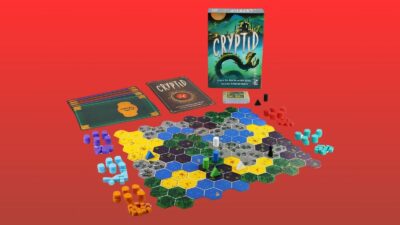

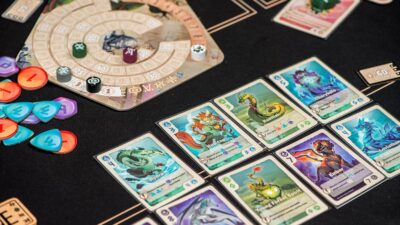
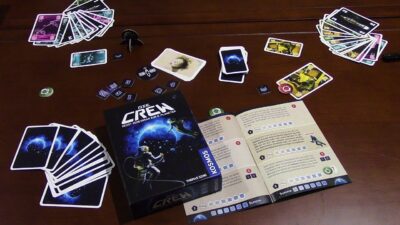
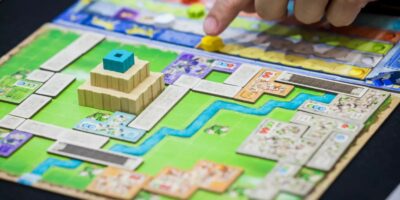
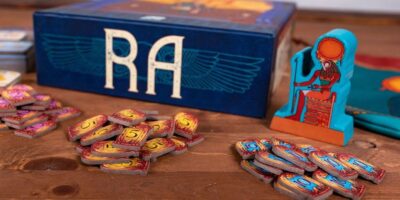
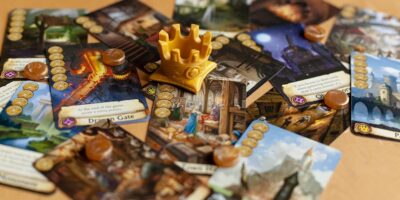
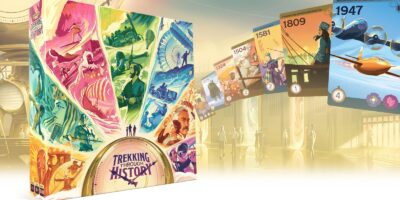

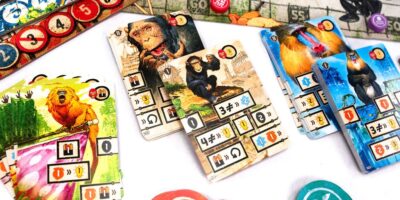




Comments